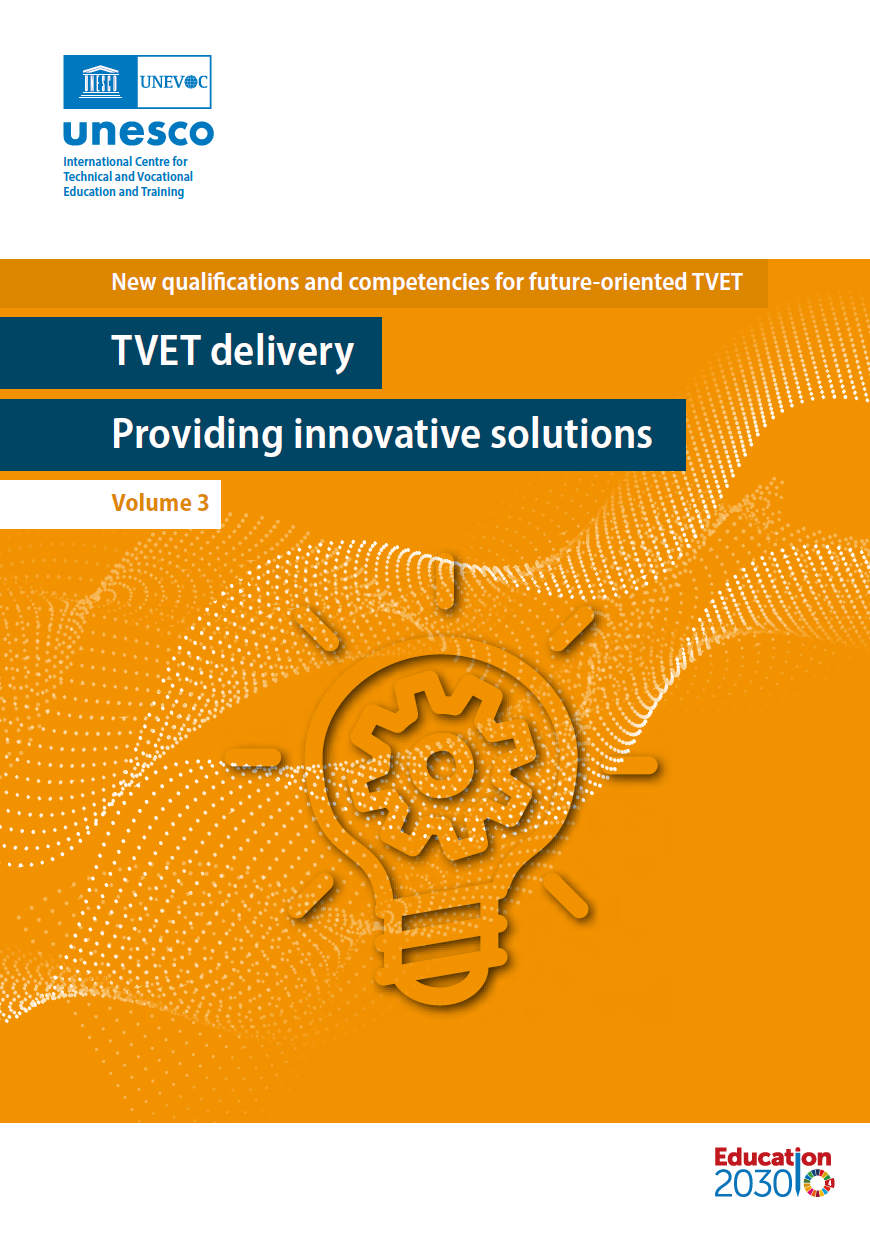
The UNESCO-UNEVOC International Centre: Who We Are | What We Do | Working With Us | Get in Touch
The UNEVOC Network: Learn About the Network | UNEVOC Network Directory
For Members: UNEVOC Centre Dashboard
Thematic Areas: Inclusion and Youth | Digital Transformation | Private Sector Engagement | SDGs and Greening TVET
Our Key Programmes & Projects: BILT: Bridging Innovation and Learning in TVET | Building TVET resilience | TVET Leadership Programme | WYSD: World Youth Skills Day
Past Activities: COVID-19 response | i-hubs project | TVET Global Forums | Virtual Conferences | YEM Knowledge Portal
Our Services & Resources: Publications | TVET Forum | TVET Country Profiles | TVETipedia Glossary | Innovative and Promising Practices | Toolkits for TVET Providers | Entrepreneurial Learning Guide
Events: Major TVET Events | UNEVOC Network News

| Author/s: | James Keevy, Kelly Shiohira, Raymond Matlala, Patrick Molokwane |
| Publisher/s: | UNESCO-UNEVOC |
| Published: | 2021 |
| Licence: | CC BY-SA |
This volume focuses on the micro-level stakeholders involved in the implementation of TVET skilling programmes and/or their components. It will suit lecturers, administrators and programme designers interested in understanding some of the challenges and opportunities of introducing new qualifications and competencies into TVET programmes.
The volume aims to address the role and contributions of TVET providers and companies in identifying, integrating and implementing new qualifications and competencies, drawing on contributions from literature as well as expert engagements and case studies. Readers are encouraged to explore the other two volumes for additional insights: ‘TVET advocacy: ensuring multistakeholder participation’ targets the meso level, and ‘TVET governance: steering collective action’ focuses on macro-level stakeholders.